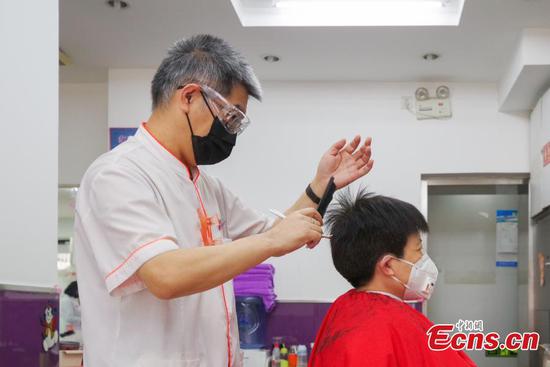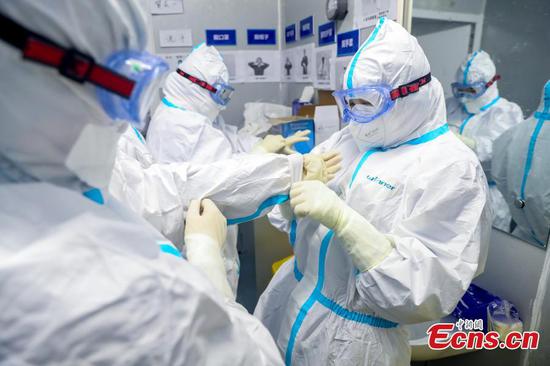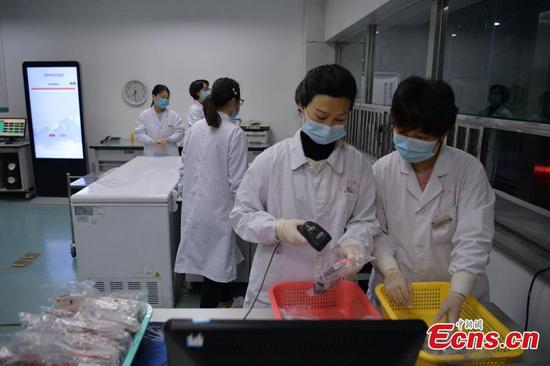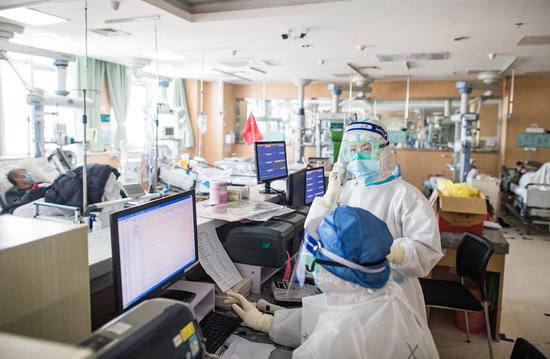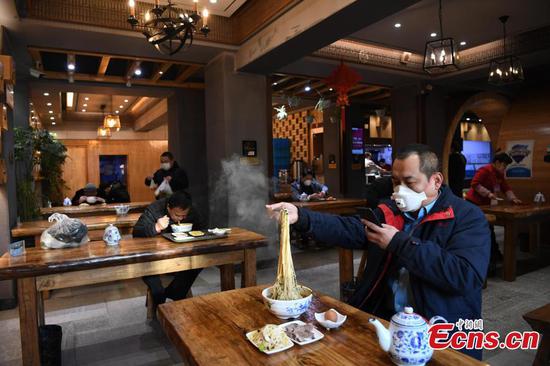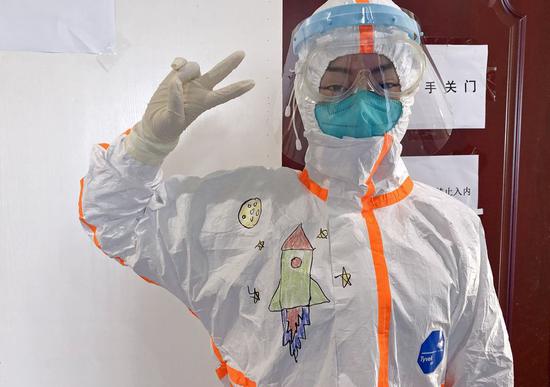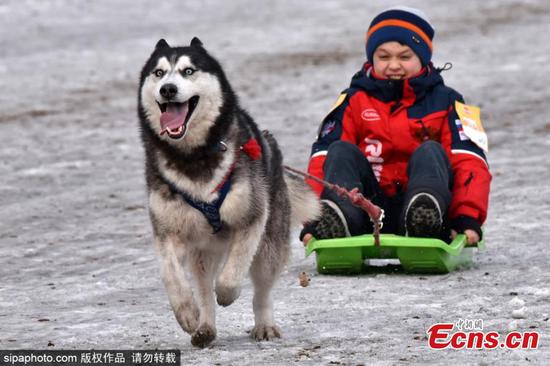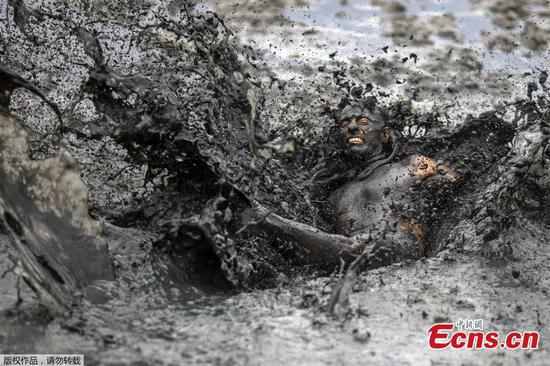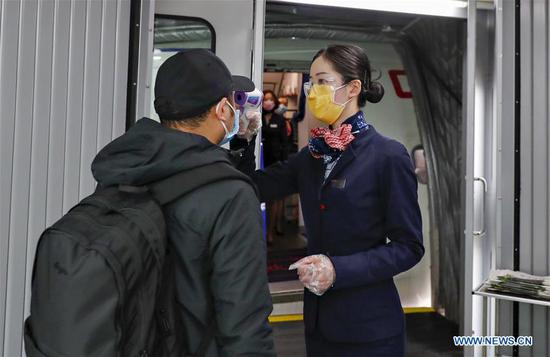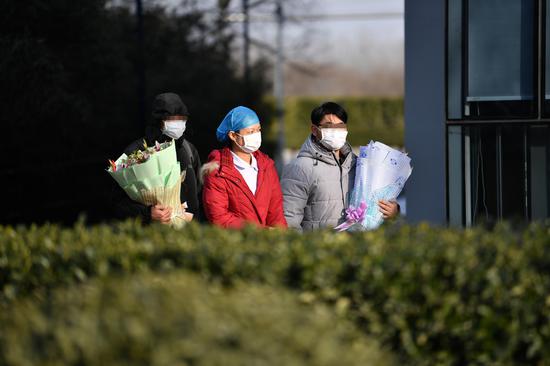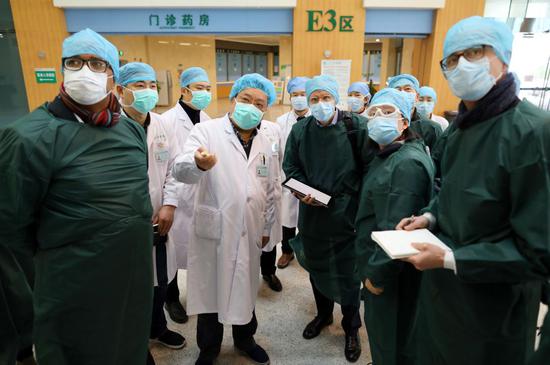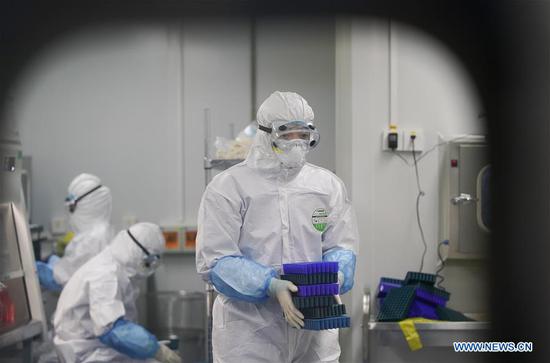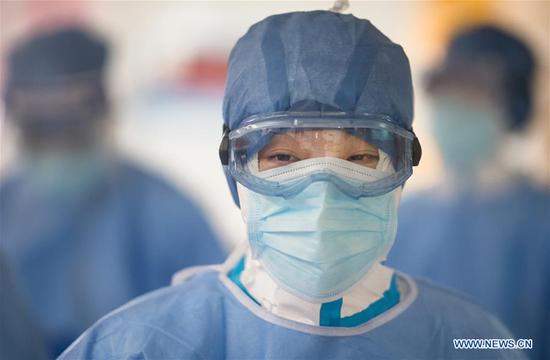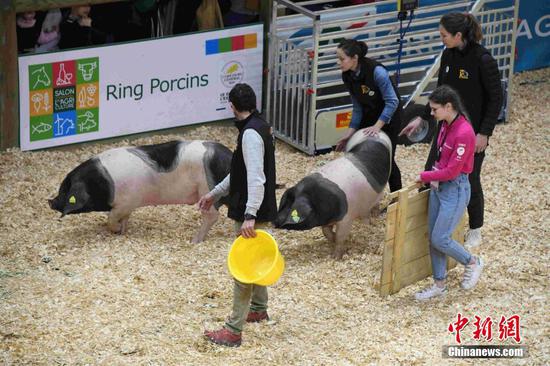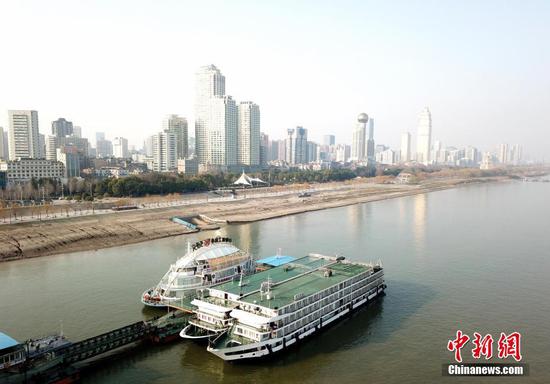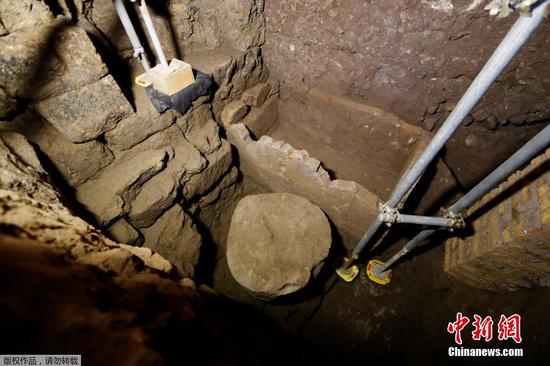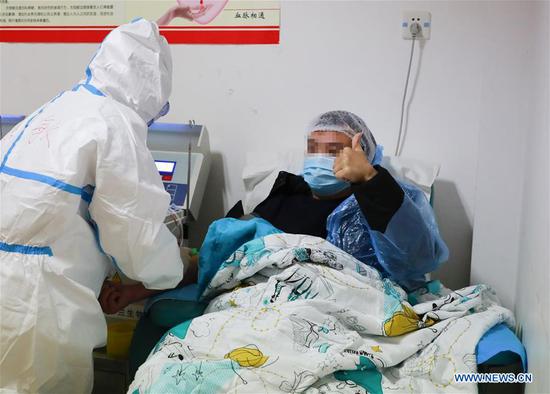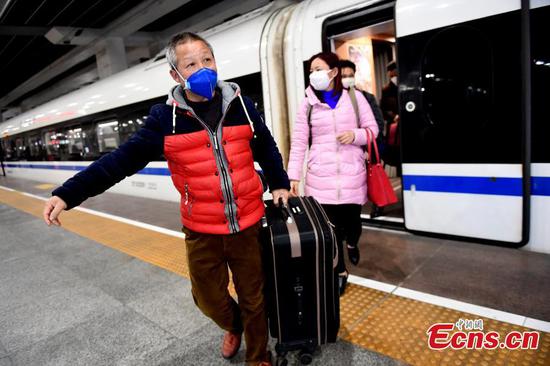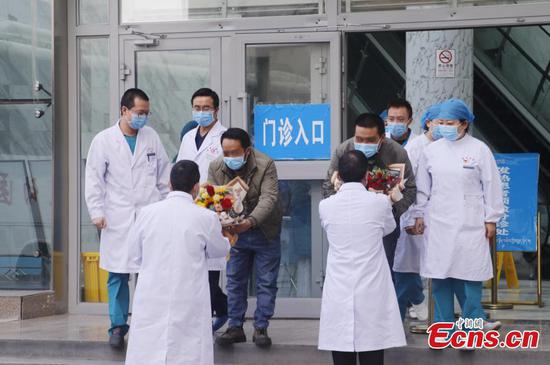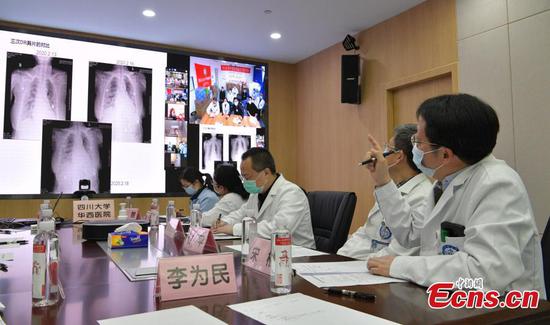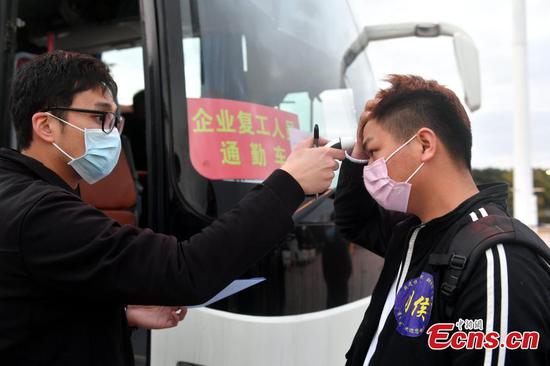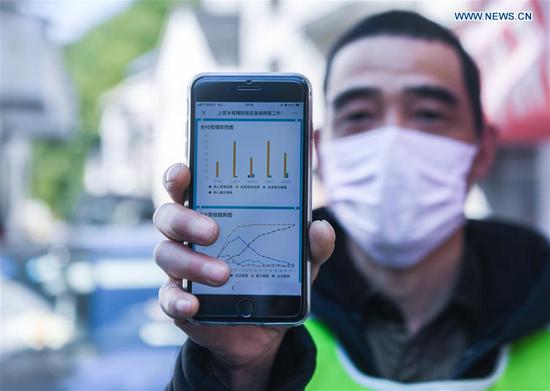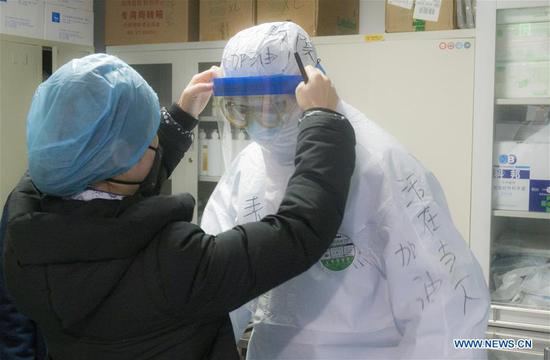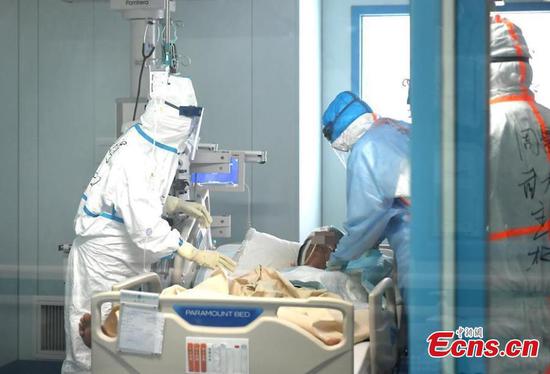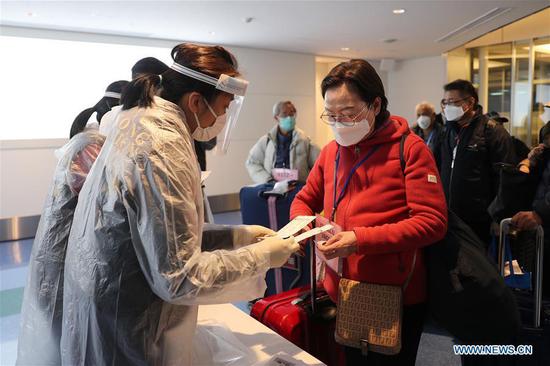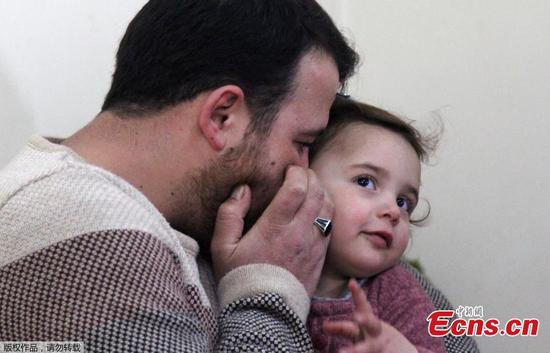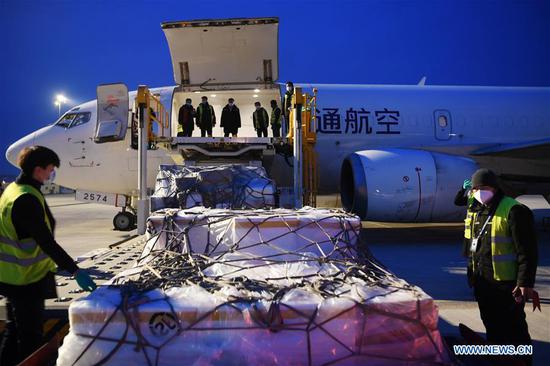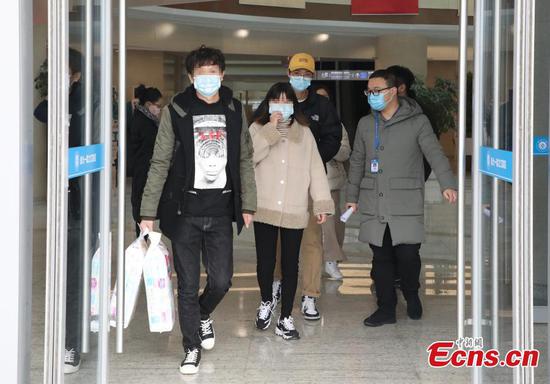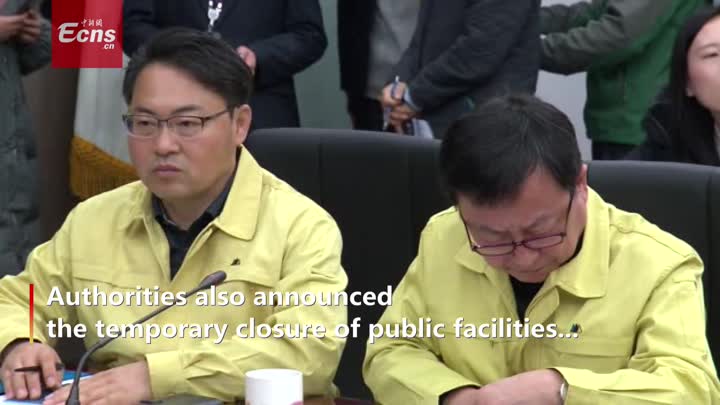China has made considerable progress in resuming economic activity, as the resumption of work and production is accelerating in an orderly manner to fight the novel coronavirus pneumonia outbreak, the country's top economic planner said on Monday.
Cong Liang, secretary-general of the National Development and Reform Commission, said at a news conference that more than 70 percent of major industrial companies in Jiangsu, Shandong, Fujian, Liaoning, Guangdong and Jiangxi provinces have resumed production, and that the ratio exceeded 90 percent in Jiangsu.
Production has been restored at 67.4 percent of steelmakers, with a restoration rate of 86.3 percent at nonferrous metals businesses.
The NDRC said that in the case of urgently needed medical protective goods, the production rate has expanded to 110 percent of normal levels.
Production has been restored at over 70 percent of grain supply and processing enterprises designated as providers of grain products during emergency times.
President Xi Jinping stressed on Sunday that the Communist Party of China committees and governments at all levels should continue their unremitting novel coronavirus infection prevention and control efforts and resume work and production in an orderly manner.
Efforts should be made to fully unleash the huge potential and powerful driving force of China's development and strive to achieve the goals and tasks for economic and social development this year, Xi said.
Cong from the NDRC said that despite the temporary impact of the novel coronavirus on the Chinese economy, there are still many favorable conditions for China to achieve its economic and social development goals this year.
"The outbreak will have temporary and limited economic effects, and it won't change the country's sound, long-term economic fundamentals," Cong said. "Some consumption demand (that has been held back by the epidemic) is not disappearing. We will see a surge of those types of consumption after the end of the outbreak."
Cong said many sectors have emerged as beneficiaries of the recent outbreak, including online shopping, online education, telecommuting, online entertainment and smart manufacturing, pointing to the strong resilience and potential of the Chinese economy.
Officials said the country will provide more proactive fiscal policies and flexible monetary measures to drive the real economy and support a strong economic rebound once the epidemic is contained.
"The (country's) proactive fiscal policy will be strengthened, and we will launch some new measures," said Ou Wenhan, assistant finance minister.
More proactive fiscal policies will be enacted to prevent the economic growth rate slipping out of a reasonable range, and new measures will include introducing new policies to cut taxes and fees to boost production resumption and support small and medium-sized enterprises, Ou said.
The central bank, meanwhile, is planning to release more countercyclical monetary measures soon, including maintaining "reasonably ample" liquidity and adopting structural monetary policy tools, Chen Yulu, vice-governor of the People's Bank of China, said on Monday. Policy banks like China Development Bank also will strengthen financial support for companies, Chen added.
Wei Jianguo, former vice-minister of commerce, said that while many companies have resumed work, some of them may feel it hard to restore production capability to normal levels.
"The key issue is the lack of raw materials, as many upstream industries are yet to restore production," Wei said. "More efforts are needed to ensure the resumption of production in upstream industries, such as chemical fiber goods required to produce masks."
The country has taken a series of measures to promote orderly resumption of work and production, including tax and fee reductions.









